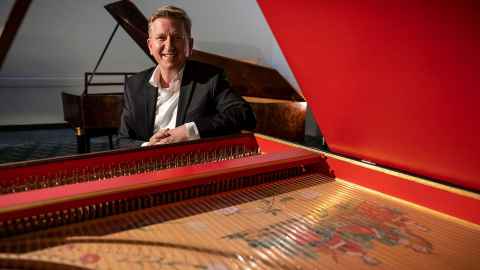Martin Rummel: music careers for modern life
29 November 2019
Opinion: Among other questions about how we teach music, Martin Rummel ponders how we move from a music teaching model based on recreation to a learning model based on creation.

In the 20th century, in particular, success in the arts was equalled with fame – a nonsensical notion that finally seems to be on its way out.
The music industry is as diverse, exciting and transdisciplinary as never before, with new professional opportunities evolving constantly. Today’s young musicians are curious and passionate about their place in society, their cultural identity and the contributions they can make to the world. Siloed one-dimensional career pathways that dominated the second half of the 20th century do not exist any more, and I feel privileged to be in a position that enables me to contribute to the guidance of young musicians into sustainable and fulfilled lives as artists.
No two careers in music are identical and – maybe except for the traditional orchestral musician – there is no such thing as a “job description” for any performer, composer, educator, producer, artist, music manager or theorist. Having driven a successful curriculum development that moved from a heavily prescribed curriculum to an individually curated student experience, I strongly believe that a music education institution of today should aim to guide its students by asking questions rather than providing them with answers.
This approach seems diametric to the old-fashioned conservatory system based on the master-apprentice model but is essential to equip students to be thriving musicians in the volatile and fast-changing modern music industry. The separation of “those who do” and “those who teach” is equally outdated as the one between those who create and those who recreate.
There is no such thing as a “job description” for any performer, composer, educator, producer, artist, music manager or theorist.
Since the 1990s, “industry skills” has become a buzz phrase in music education, often resulting in outdated courses on crafting a CV or learning basic income tax or accounting. A more contemporary approach includes wide aspects of music dissemination, outreach and music appreciation, educational skills, digital literacies as well as knowledge in fundraising.
With an increasing diversification of concert formats and the constant change of opportunities for digital music dissemination, comes the need for students to not only be able to choose the best avenues for their own art but also to populate their chosen platform with meaningful combinations of content. This requires hands-on skills as well as a deep understanding of technical, social and artistic contexts.
To give an example: I am convinced that in 50 years’ time, complete Beethoven Symphony cycles without a connection to the present, whatever form this connection takes, will not be performed any more. Therefore, we must re-evaluate the acknowledgement of historical content and its relevance to now.
While you are reading this, people are inventing new instruments, creating new techniques and writing new music. Consequently, music that is not older than five years has to be a standard requirement for all aspects of learning, while in current syllabi “contemporary music” often only equals atonal, dodecaphonic or serial music that is 100 years old.
It seems that 20 years into this new millennium three challenging questions for the curriculum development of a music school are shared across the globe:
- How do we redefine the canon to address the exponential growth of musical styles, genres, techniques and languages?
- How do we move from a teaching model based on recreation to a learning model based on creation?
- How do we ensure students have the necessary skills for their future careers without over-prescribing their pathway through a degree?
I am convinced that in 50 years’ time, complete Beethoven Symphony cycles without a connection to the present, whatever form this connection takes, will not be performed any more.
For the delivery of a successful education model, there are other aspects to be considered, such as student mobility. I strongly believe that not only visiting students benefit individually from studying in a new country, but also the local community is enriched by incoming exchange students or international students participating in projects. This includes academics, as it often means adapting teaching style or content to cater for students who have different learning backgrounds. Successful partnership models that I have seen internationally capitalise on locally relevant content, cultural context and pedagogy.
Furthermore, partnerships with entities that enable students to have “real-life” experiences during their studies are essential. Students should have a chance to immerse themselves in the professional world under the guidance of tutors.
As today’s musical world is increasingly rich and diverse in all its aspects, students at tertiary level need to be equipped with a wide range of musical skills and knowledge. They also need to be culturally, socially and digitally aware, curious and exploratory, forward thinking and aware of the past, collaborators and critical thinkers.
A school that provides an inspiring and nurturing environment for their journey into the profession, with a sense of local relevance and responsibility, and with a conscious awareness of its standing in the international context, is an environment that I am proud to be part of.
This opinion piece first appeared as a Māramatanga in the December 2019 edition of UniNews.
The views in this article reflect personal opinion and are not necessarily those of the University of Auckland.